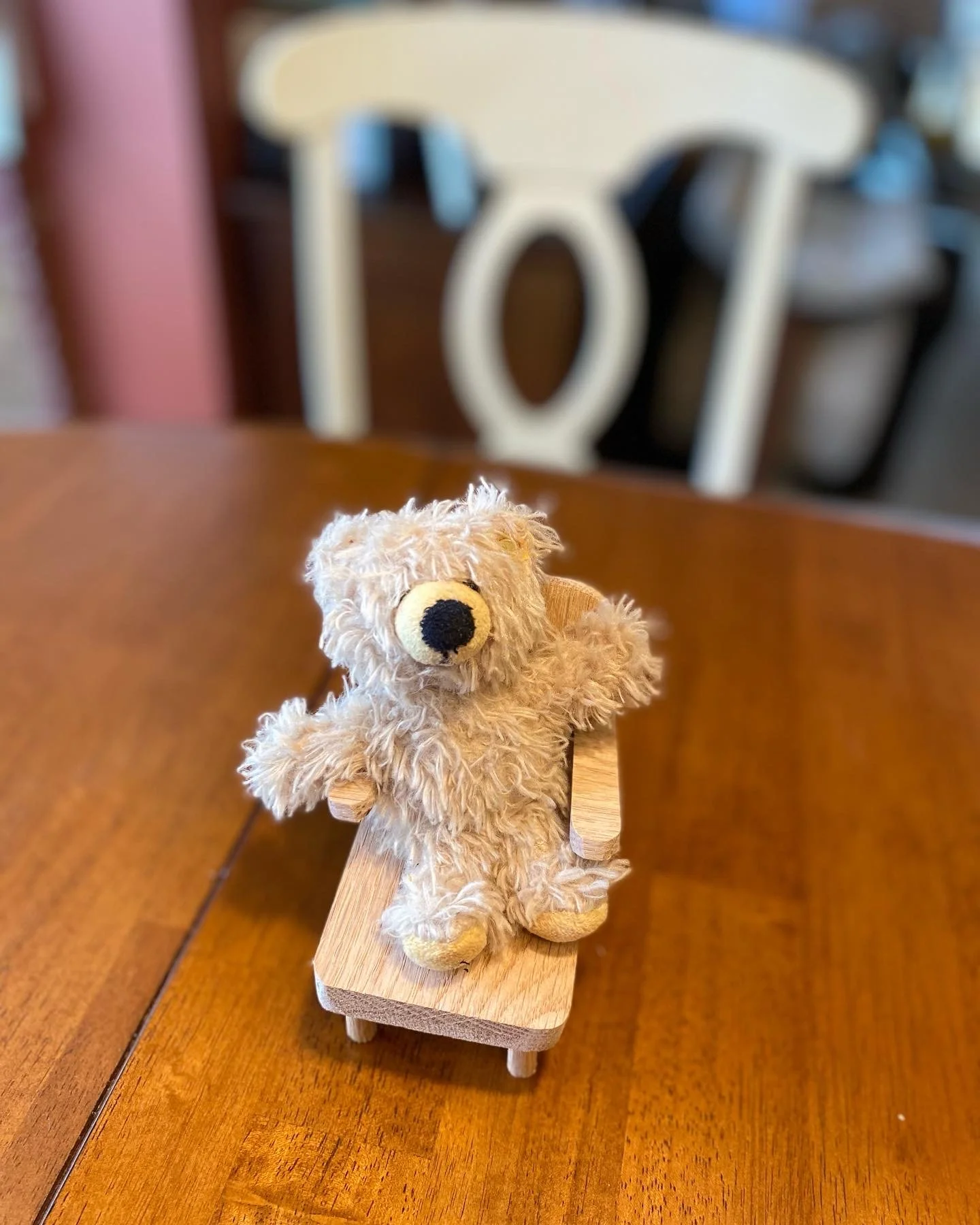Did you ever notice how all the winter holidays include light(s) as a main part of their rituals and celebrations? This is not an accident. Most people are feeling dark this time of year because it IS dark. This is the darkest time of the year! According to Bob Berman (of almanac.com), the earliest sunset is in early December, followed by the winter solstice on December 21, when there are the fewest minutes of daylight, and then, in early January there is the latest sunrise.
So there is good reason why humans create light(s) to help guide us through this seasonal time. The only problem with that is when we start expecting that we “should” be feeling the “holiday spirit” buying things, sprinkling glitter on ourselves and others when we’re not feeling glittery. What if we invited the non-glitter? The meh, the sad, and the empty loss feelings? I know, not fun. But when we invite these feelings to the table, and practice other tools, it often ends up making space for the authentic glow to be there, to be here, too.
1. Invite the non-glittery parts of yourself to the table.
Invite an object that represents your loss to the table.
What if you were to invite your loss to be there, be here, without needing to make it sparkly? If you are in your first, or fortieth, holiday without a beloved loved one who has died, make a space for that, for your loss, and your ongoing connection. Find or create an object that represents this, and invite it to the table. Literally.
For Thanksgiving this year, my son and I had an extra chair at the table. It was a small chair with a bear sitting in it. The bear was given to him by his Papa, my husband. It is our third year without him. This bear sat at the table with us. Contrary to what some might think, it didn’t make us sad. It made us happy. It made us happy that some part of Papa was still there/here with us. The fourth task in grief theorist Worden’s four tasks of mourning is “to find an enduring connection with the deceased in the midst of embarking on a new life.”
Going dark doesn’t mean wallowing in a black hole of depression. It just means allowing your experience of loss, or feeling hibernate-y, to be there without putting pink icing on it. Also, allowing doesn’t mean indulging and bingeing it (more on this soon), it simply means acknowledging it.
2. Don’t plug the hole
Here’s the thing: what most humans do with discomfort is try to get away from it. They try to “plug the hole.” This is where the Buddhists are so wise in starting with the premise that all life is suffering. And knowing that pain is a given, but resisting pain creates more suffering. So when you find yourself, like most humans, wanting to “plug the hole” of emptiness, loss, boredom, angst, loneliness, grief, and “meh” with various things (food, alcohol, social media, Netflix, shopping, sex), stop.
Just pause, for a few breaths.
Right now.
Breathe in…
Breathe out…
Breathe into your belly,
expand your diaphragm imagining inflating a balloon in your belly…
Breathe out, slowly deflating the balloon …
Notice what this hole feels like- if it has a color, shape, texture. You can still have the food. Or the alcohol (if you are not in abstinence-based AA recovery, lol). Or shop for gifts. Or watch Netflix. Just make a choice about how, and in what way, you are in relationship with these. Because if you are looking to fill the hole of grief, or loneliness, or sadness, with any of these things, you will just feel even more empty afterwards. It will be a “one bite is too much and a thousand is never enough” experience. Instead, bring love into your breath and inhale deeply.
3. Seek support (the right kind).
When I was studying for the psychologist licensure exam, we had to memorize some seminal studies. One of them was Stanley Schachter’s on the topic of “affiliation.” The gist of his study was basically that emotional “affinity groups” tend to gravitate to each other. In other words, misery loves company, but misery loves miserable company even more. Am I saying go hang out with miserable people? ABSOLUTELY NOT. (Unless you want to. You decide). However, I am saying if your mom or dad recently died, it might be easier and feel less draining to talk with someone else whose parent died. Or if your spouse died and you are looking for understanding with solo parenting, it might feel better to connect with another solo parent than with a newly married and pregnant couple. You might rather be with extroverts (if you are extroverted), introverts (if you are introverted), or people-who-appreciate-gallows-humor if you like to laugh as a way to cope with what can otherwise feel to heavy. The point is give yourself permission to find your people and gravitate to them. Hang with them for the holiday.
Here’s a link if you want to be a Psychology nerd:
https://study.com/academy/lesson/stanley-schachter-affiliation-anxiety.html
4. Keep it Simple.
If you are traveling the holiday season without your loved one who has died, it can feel overwhelming to do all the traditions you used to do together. It can feel like one, big, looooong grief-fest of triggers. Here’s a thought: Keep one tradition or add one new tradition. Just one. If you always got a tree, and you like getting a tree, get the tree. If your dad always made a gratitude toast, and he is no longer with you this year, make a toast. If your Dad always made a toast, and then got drunk and angry, let that tradition go. My husband was a Brit, and he loved his flaming Christmas fruit cakes. But a) I never liked them and b) I suck at making flaming cakes. My flaming cakes are a fire hazard. So now I make a trifle. It is still English, and keeps him with us. But I make ONE trifle. Not 12 trifles. Not a trifle and a flaming fruit cake and cookies and fudge and a Christmas log and caroling to every neighbor. Nope. Just a trifle. I’m getting better at it, too. The first year, it was mostly a squished together (but tasty) mess; the second, less squished, more aesthetically pleasing. This year I’m applying for The Great British Baking Show. (JK! I’m going for Nailed it).
5. Be of Service
(It doesn’t have to be big!)
In all 12 step recovery programs, there is a concept that “you can’t keep it unless you give it away.” This is the meaning of service. It doesn’t have to be big. You can be the person that puts out the chairs, or sets up the zoom meeting, for the 12 step meeting, or church. Sometimes it’s easier to be of service to someone that has traveled with the same hardship as you. If you are a widowed parent, here are just two of many I have found:
Dreams from Drake offers all kinds of opportunities for kids who have experienced the death of a loved one. Here is information on their Happy Hearts for the Holidays toy drive:
https://dreamsfromdrake.org/join-us/
One widowed mom realized how lonely it was to buy and open a gift from…herself on Christmas. This is what she did to change that:
Or you could simply text another person that you are thinking about them. (Remember the Keep it Simple part of #4).
6. Be Kind.
Last but not least, be kind. Be kind first and foremost to yourself, whatever you choose. Tell yourself:
“I’m with you, honey. In this experience. I know it’s hard. Iknow it sucks. I got you. I’m with you. We are going to get through this. I’m not going to be mean to you while you are feeling this way. I’m sorry I have been, in the past. It’s ok to feel the way you feel. I’m here.”
I know it sounds cheesy, but it’s really the only way I’ve found to travel anywhere that you want to go, including getting through the holidays. With grief. Which is love, looking for a place to land. Let that love land in you.
Invite the feelings. Talk to them as if they were your child. They’re not bad. They just need your attention. Don’t plug the hole. (And, if you do, forgive yourself and be kind. NO dieting. As one of my eating disorder colleagues says, this is not a die-t. This is a live-it.). Seek support, keep it simple, be of service, do one ritual. But most of all, be kind. You will get through this. Just do it one breath at a time. The only way out is through.








